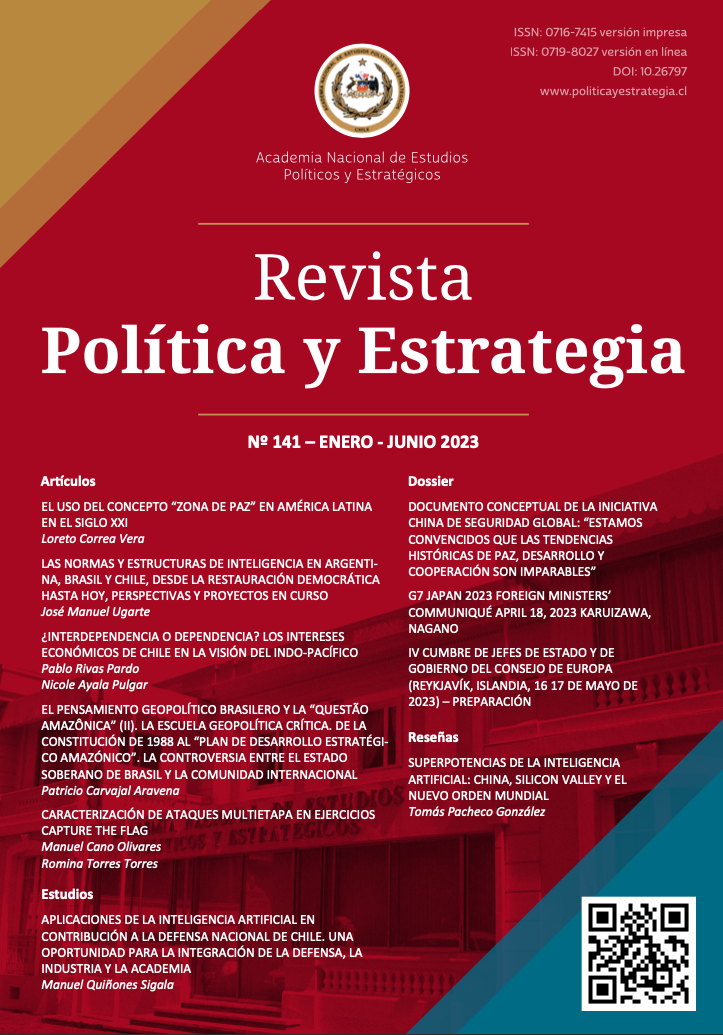THE USE OF THE CONCEPT "ZONE OF PEACE" IN LATIN AMERICA IN THE XXI CENTURY
Main Article Content
Abstract
The study presented below reviews the use and meaning given by the different countries of the Latin American region to the concept of "zone of peace". The article thus makes a trip to presidencies and speeches, recognizing the diversity, use and readings on a concept that is clearly controversial in terms of foreign policy and international defense.
Through referential literature, the dynamism that has characterized the use of this concept and the absence of a consensus on its meaning is reflected over time.
This work hypothesizes that Latin American countries use the concept of zone of peace in a diffuse and differentiated way. This presentation demonstrates that what countries have done since the 1990s against the concept is to use it as a multipurpose function, which means sometimes invokes the internal politics of countries and the ruling out of interstate conflict, moving away from the mainstream on this issue in matter of international relations.
In this research, various academic articles corresponding to different institutions related to the study and analysis of social phenomena and national defense of different countries were used. The construction of the concept in Mexico, the Central American region, Colombia, Argentina and Chile was emphasized, considering the importance that each nation gives to the use and contextualization of the concept.
Article Details
Downloads

This work is licensed under a Creative Commons Attribution 4.0 International License.
The authors keep the copyright of their works, in the other hand, the journal Politica y Estrategia is distributed under a Creative Commons Attribution 4.0 International license